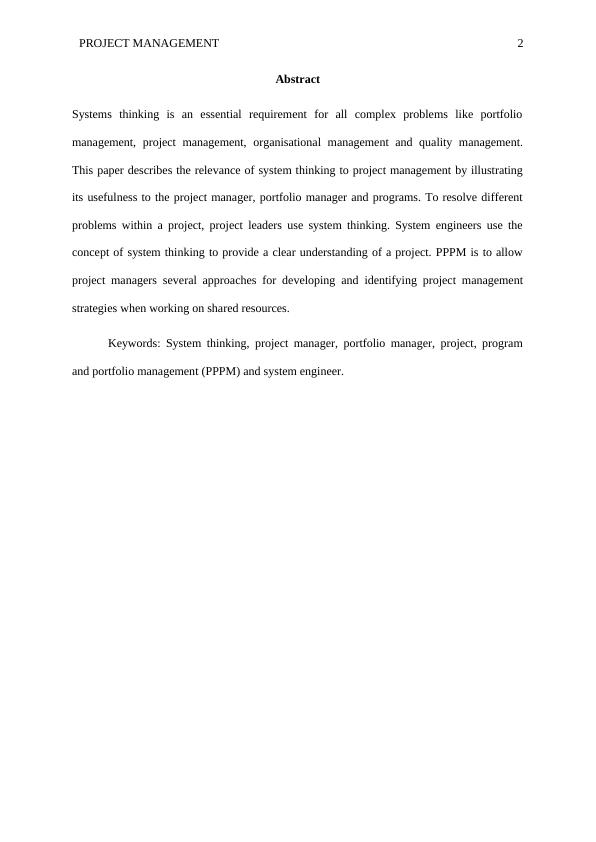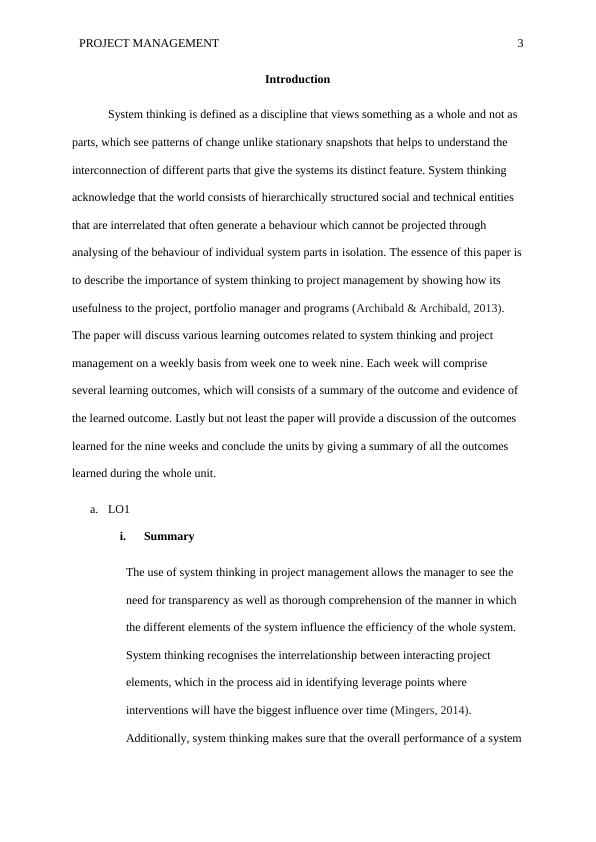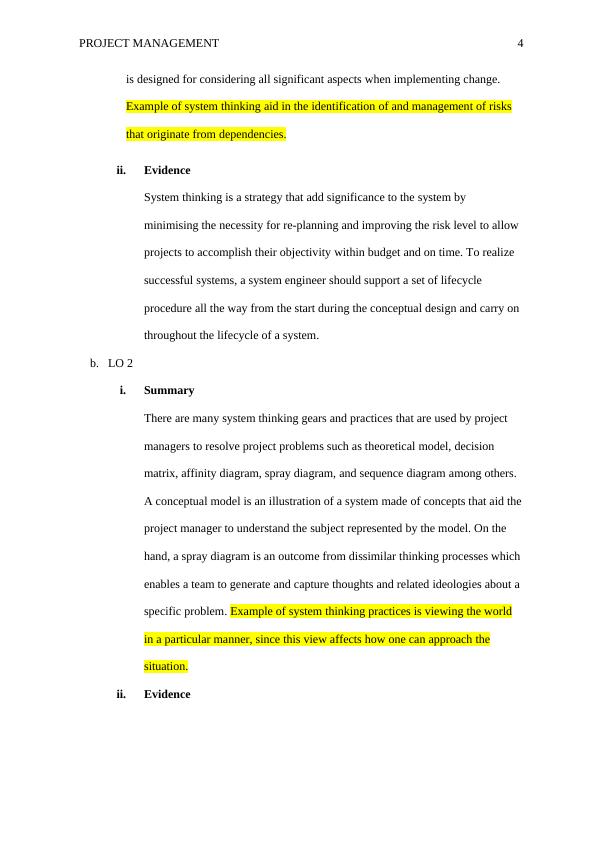The Relevance of System Thinking in Project Management
Provide ideas for structuring a consolidated portfolio for a project management course.
14 Pages2645 Words369 Views
Added on 2023-03-31
About This Document
This paper describes the relevance of system thinking to project management by illustrating its usefulness to the project manager, portfolio manager, and programs. It discusses various learning outcomes related to system thinking and project management and provides evidence of its application in different scenarios. The paper also explores the advantages and disadvantages of embracing a project, program, and portfolio management (PPPM) approach.
The Relevance of System Thinking in Project Management
Provide ideas for structuring a consolidated portfolio for a project management course.
Added on 2023-03-31
ShareRelated Documents
End of preview
Want to access all the pages? Upload your documents or become a member.
Program and Portfolio Management Information System
|28
|9150
|41
Portfolio Manager: Systems Thinking, Engineering, and Application Systems
|10
|2157
|84
PPMP20012 Consolidated Portfolio Week 1 Topic: Explaining the relevance of systems thinking to PM
|8
|3035
|71
Program and Portfolio Management Information System
|14
|2953
|88
Program And Portfolio Management Information Systems Assignment
|9
|2758
|29
Program and Portfolio Information System 2022
|127
|50284
|18




